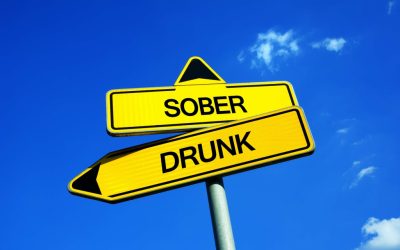Chapter 4 Oral Naltrexone Incorporating Alcohol Pharmacotherapies Into Medical Practice NCBI Bookshelf
You should not take naltrexone if you have recently stopped using opioid medications or opioid street drugs and are now experiencing withdrawal symptoms. If you are struggling with addiction, specifically opioid use disorder or alcohol use disorder, naltrexone can help you reduce cravings and cut back on misuse. Naltrexone is an opioid antagonist that is used for the long-term management and treatment of opioid and alcohol use disorders. Tell your healthcare provider about all of your health conditions and any prescription or over-the-counter (OTC) medicines, vitamins/minerals, herbal products, and other supplements you are using. It works by blocking the effects of opioids, especially the euphoric and rewarding feeling that makes you want to use them. It also may block the euphoric and rewarding feeling that may make you want to use alcohol.
Why is this medication prescribed?
- It’s prescribed as one part of a treatment program that may include counseling, psychotherapy, education, and support groups.
- For example, a 2016 meta-analysis showed naltrexone as an effective medication in targeted use without abstinence, like in TSM.
The activity of naltrexone is believed to be due to both parent and the 6-ß-naltrexolmetabolite. The mean elimination half-life (T-1/2) values fornaltrexone and 6-ß-naltrexol are 4 hours and 13 hours, respectively. Naltrexone and 6-ß-naltrexol aredose proportional in terms of AUC and Cmax over the range of 50 https://ecosoberhouse.com/article/naltrexone-side-effects-uses-and-risks/ to 200 mg and do not accumulateafter 100 mg daily doses. There is also the possibility that a patient who is treated with naltrexone hydrochloride could overcomethe opioid blockade effect of naltrexone hydrochloride.
- It’s also helping people move away from an unhelpful all-or-nothing attitude.
- The good news is that most are mild and temporary, especially as your body adjusts.
- However, that’s likely because light drinkers have a lower baseline of cravings and the “reward” it produces.
- They show that naltrexone still works to dampen alcohol’s “reward” and reduce cravings.
How Naltrexone Works To Transform Your Relationship With Alcohol

There’s no risk of addiction with naltrexone, and it doesn’t make people drowsy or impair their ability to function normally. The medication is an effective option for both people who want to remain abstinent from alcohol and those who just want to drink less. Some patients, with the guidance of a medical provider, intentionally take naltrexone only one to two hours before they know they will have a drink (sometimes referred to as “The Sinclair Method”). Whether your goal is to remain abstinent from alcohol or just manage your relationship with alcohol, it’s important to follow your medical provider’s guidance should you be prescribed the medication. Yes, Naltrexone works for alcohol addiction by blocking opioid receptors in the brain, which reduces the pleasurable effects of alcohol and helps decrease cravings. It supports long-term recovery from alcohol addiction by reducing the risk of relapse.

Why Recovery Housing Matters for Lasting Sobriety

Results of this study demonstrated that the side effect profile ofnaltrexone hydrochloride appears to be similar in both alcoholic and opioid dependent populations, andthat serious side effects are uncommon. Transaminase elevations occurred in 3 of 9 patients with Alzheimer’sDisease who received naltrexone hydrochloride (at doses up to 300 mg/day) for 5 to 8 weeks in anopen clinical trial. Clinicians are reminded that there is no completely reliable method for determining whether a patienthas had an adequate opioid-free period. A naloxone challenge test may be helpful if there is anyquestion of occult opioid dependence. If signs of opioid withdrawal are still observed followingnaloxone challenge, Oxford House treatment with naltrexone hydrochloride tablets should not be attempted. Otherdose regimens or durations of therapy were not evaluated in these trials.
- With addiction, a drug is taken even if it’s causing harmful outcomes.
- Alcohol can have drastic negative effects on the liver, heart, gastrointestinal tract, brain, and pancreas, and can lead to poor decision-making and impaired behaviors.
- Naltrexone is not for everyone, and it is important to speak with your healthcare professional about naltrexone before starting this medication.
- To learn more about taking Contrave for weight loss, talk with your doctor.
